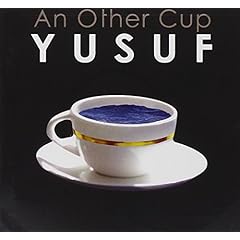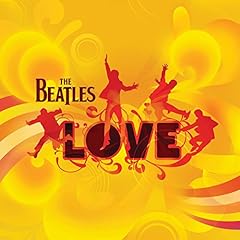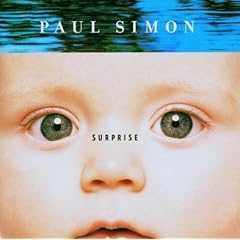Punk Rock Countdown: No. 1
"Clampdown," by The Clash
In his book England's Dreaming: Anarchy, Sex Pistols, Punk Rock, and Beyond, Jon Savage quotes French literary and historical scholar Jacques Attali, putting punk into a proper broader context. Quoting from Attali's book Noise: The Political Economy of Music:Music is prophesy. Its styles and economic organization are ahead of the rest of society because it explores, much faster than material reality can, the entire range of possibilities in a given code. It makes audible the new world that gradually becomes visible; it is not only the image of things, bu the transcending of the everyday, the herald of the future. For this reason, musicians, even when officially recognized, are dangerous, disturbing, and subversive.
If ever a record made a new world audible to me, it was the Clash's London Calling. It not only heralded the future, but it also reminded us that ghosts of our collective past were not far away -- and indeed, lived on as we walked into a new world. With "Clampdown," the Clash conjures up the ghosts of Europe's past -- the horrors of World War II and the Nazi wehrmacht -- and reminds us that those same haunting spirits are ever with us.
It begins with feedback from Mick Jones' amp, a 1-2-3-4 shout out, and the signature tandem of Jones' slashing guitar chords yoked to Paul Simonon's thundering bass. Drummer Topper Headon keeps time with a steady martial beat, while under his breath Joe Strummer utters the prelude. It's a vision of fascist horror -- not on some European battlefield but in a schoolyard:Jimmy's outside but you can't take him back for the drama of designJimmy's under arrest, it seems. The jackboots of authority "slowly click on" to quash the next rebel. And in unison, Strummer and Jones ask: What are we gonna do now?
They hit him in the back and see the long arm dropped over the school cuisines
They say now back and hands facing the sidewalk as they slowly click on
In three minutes and 52 seconds, "Clampdown" describes the threat of totalitarianism to the human soul. ("No man born with a living soul/can be working for the clampdown.") But the totalitarianism Strummer describes comes not only from government fascists, but also from the world of meaningless work. In some sense, "Clampdown" is a song about the proletariat struggle to be freed of our bonds. But at another level, it's a song that speaks to each of us who, to borrow a phrase from another great Clash song, "makes a bargain with the world." It's a song of caution to those who compromise their ideals for a litle bit of short-term gain, material success, or the illusion of security. It's a social critique of conformity, of selling out -- and it's ironic because, in just a few years after the release of London Calling, the Clash themselves would be seen as sellouts (with the release of Combat Rock in 1982).
In the wake of Strummer's mumbling prelude, the song begins in earnest with images of Nazi atrocities juxtaposed with yuppie pride of one-up-manship. Both Hitler Youth and Yuppie, it seems, are working for the clampdown:Taking off his turban, they said, is this man a Jew?Swap "Arab" or "Muslim" for "Jew" in the first line, and the song would find immediate relevance in our post-9/11 world. Music is prophecy...
they're working for the clampdown
They put up a poster saying we earn more than you!
When we're working for the clampdown
The critique goes on to address the dangers of conformity (and the blind faith of "young believers"), again conjuring images of the Hitler Youth:We will teach our twisted speech
To the young believers
We will train our blue-eyed men
To be young believers
Strummer then tells about standing up to the authorities: "The judge said five to ten/but I say double that again/I'm not working for the clampdown." (This never happened in Strummer's life; the worst he ever got was a night in jail for some vandalism.) The scene then changes from politics and law enforcement to the world of work:The voices in your head are callingThis is a variation on a familiar Clash theme. Earlier works -- such as "Career Opportunities" and "All the Young Punks," which proclaims that working in "some factory" is "no way to waste your youth" -- as well as later songs ("Magnificent Seven") suggest that meaningless work in an industrial economy is as oppressive as fascism.
Stop wasting your time, there’s nothing coming
Only a fool would think someone could save you
The men at the factory are old and cunning
You don't owe nothing, so boy get runnin'
It’s the best years of your life they want to steal
But do we heed the wisdom of the old, cunning factory hands? No, not us. We can change things.
And as an alarm clock sounds -- a wake-up call? or the bell tolling for us? -- Strummer paints a portrait of the young punk all grown up:You grow up and you calm downYes, we've grown up, calmed down, sold out. We're in our 40s, secure in our middle-class lives. But "Clampdown" tells us that, whether we realize it or not, working in our offices and factories, we're fully assimilated into the culture of death.
You're working for the clampdown
You start wearing the blue and brown
You're working for the clampdown
So you got someone to boss around
It makes you feel big now
You drift until you brutalize
You made your first kill now
Or are we? Subversively, Strummer offers a glimmer of hope, whispering toward the song's conclusion that at least a couple of "evil presidentes" have "fully paid their due/for working for the clampdown."
The resistance continues. Some of the sellouts may not be sellouts at all. They're working hard in Harrisburg, working hard in Petersburg. Ha! Gitalong gitalong!
So, there you have it. My choice for all-time best punk tune.
Why "Clampdown"?
Well, for one reason, this line -- my favorite in all of punkdom:Let fury have the hour, anger can be powerOther than that, though, I'm giving away no secrets.
D'you know that you can use it?
Throw your bricks in the comments below. I'll post links to all 40 tunes in the countdown later today, if I have time.
:: Andrew 15:31 + ::
...
bloggedy blog
bloggedy blog recommends
bloggedy pod (my podcast page)
Independent hotels
in Missouri
eMusic's Power Charts: The Most Interactive Music Charts Online.
In rotation
What I've been listening to lately. Click album cover or hyperlink to hear track samples and learn more.
 Rickie Lee Jones, Sermon on Exposition Boulevard
Rickie Lee Jones, Sermon on Exposition Boulevard
 Patty Griffin, Children Running Through
Patty Griffin, Children Running Through
 Of Montreal, Hissing Fauna, Are You the Destroyer?
Of Montreal, Hissing Fauna, Are You the Destroyer?
 Field Music, Tones of Town
Field Music, Tones of Town
 De Bossen, The Girl Collection
De Bossen, The Girl Collection
 Cold War Kids, Robbers & Cowards
Cold War Kids, Robbers & Cowards

Frida Hyvonen, Until Death Comes

Tratore Basics Vol. 2, Novo Rock Brazil
 Yusuf: An Other Cup
Yusuf: An Other Cup
 The Beatles: Love
The Beatles: Love

The French Kicks: Two Thousand

The Blow: Paper Television

Freedom Haters Unite! A Bloodshot Records Sampler

Swan Lake: Beast Moans

Prototypes: Prototypes

Scanners: Violence Is Golden

Voxtrot: Mothers, Sisters, Daughters & Wives

Voxtrot: Your Biggest Fan

Macon Greyson: Translate

The Evens: Get Evens

Veruca Salt: Veruca Salt IV
 Bob Dylan: Modern Times
Bob Dylan: Modern Times

Pink Tuscadero: Look Your Best

Leigh Nash: Blue on Blue

Yo La Tengo: I Am Not Afraid of You and I Will Beat Your Ass

The Hold Steady: Boys and Girls in America

Bobby Bare Jr.: The Longest Meow"

The Be Good Tanyas: Hello Love

The Lemonheads: The Lemonheads

Ben Kweller: Ben Kweller

The Pipettes: We Are the Pipettes
 Paul Simon: Surprise
Paul Simon: Surprise

Exene Cervenka and the Original Sinners: Sev7en
 Johnny Cash: American V: A Hundred Highways
Johnny Cash: American V: A Hundred Highways

The John Doe Thing: For the Best of Us

The Fondas: Runaway Bombshell

Buzzcocks: Flat Pack Philosophy

Asobi Seksu: Citrus

Tapes 'n Tapes: The Loon

Various Artists: 2006 Pitchfork Music Festival Sampler (24 free tracks)

The Futureheads: News and Tributes

The Bottle Rockets: Zoysia

Camera Obscura: Let's Get Out of This Country

Art Brut: Bang Bang Rock & Roll

Drive By Truckers: A Blessing and a Curse

The Raconteurs: Broken Boy Soldiers

Belle and Sebastian: The Life Pursuit

Cat Power: The Greatest
bloggedy tags
from our sponsors
for your viewing pleasure
24x7
rocketboom
the Richard Show



 Simon Dawes,
Simon Dawes,